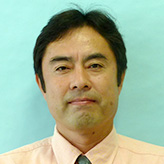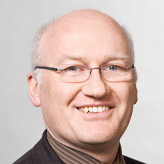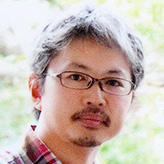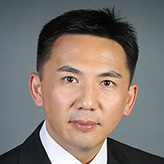SIP-adus Workshop 2022
Abstracts & Speakers List
- Oct. 11 [Tue.]
- Opening Session
- Regional Activities
- Human Factors
- Impact Assessment
- Japanese Government
- Panel Discussion
- Oct. 12 [Wed.]
- Dynamic Map
- Connected Vehicles
- Cybersecurity
- Safety Assurance
- Service and Business Implementation
- Closing
- Human Factors
- This session will summarize the past efforts in human factors for safety of automated driving, and also share unsolved issues and new issues.
Moderator
-

Satoshi Kitazaki
Director
Human-Centered Mobility Research Center (HCMRC)
National Institute of Advanced Industrial Science and Technology (AIST)
JapanDr. Kitazaki is Director, Human-Centered Mobility Research Center, National Institute of Advanced Industrial Science and Technology (AIST), Japan. Since 2016, he has been the leader of the national research project on human factors in automated driving, a part of SIP-adus, Strategic Innovation Promotion Program on Automated Driving for Universal Services, supported by Cabinet Office, Government of Japan. He has been also serving as a co-chair of Human Factors Working Group in the EU-US-JP Trilateral Cooperation framework, co-leader of Germany-Japan research cooperation on human factors in automated driving, and an expert in ISO/TC22/SC39/WG8. He received his Bachelor’s and Master’s degrees from Kyoto University, Japan, and Ph.D. from the University of Southampton, UK. He has experiences of working in the automotive industry, Nissan Motor, and also working in the academia, University of Iowa, before joining AIST in 2015.
Speaker
-

Klaus Bengler
Chair of Ergonomics, Professor
School of Engineering and Design
Technical University Munich (TUM)
GermanyProject Leader Germany - Japanese-German Cooperation on Human Factors in Automated Driving Diploma Psychology
11/1991 - 03/1992 Teaching Assistant at Institute of Experimental Psychology and Methodology University of Regensburg
09/1994 – 01/1997 Ergonomic consultant and expert evaluator for automotive interaction concepts
02/1997 – 08/2000 BMW research: Team member human machine interaction
09/2000 – 04/2009 BMW research: Team leader human machine interaction and leader BMW usability lab
since 05/2009 Head of the Institute of Ergonomics Technische Universität München -

Toshihisa Sato
Leader, Human Behavior Research Team
Human-Centered Mobility Research Center (HCMRC)
National Institute of Advanced Industrial Science and Technology (AIST)
JapanDr. Toshihisa Sato works as a team leader at the National Institute of Advanced Industrial Science and Technology (AIST).
He received his master thesis (2001) and Ph.D. (2005) at Keio University. His research backgrounds are human factors, human-computer interface/interaction, behavioral analysis, and modelling. In 2016, he joined the 1st phase human factors research program of SIP-adus, and he was a leader of “TASK B (evaluation of driver states and takeover performances to develop driver monitoring system)”. He has been involved in one task of the 2nd phase human factors programs of SIP-adus, focusing on the development of evaluation methods of driver’s OEDR (Object and Event Detection and Response) and HMI for enhancing driver’ take-over in a transition from automated to manual driving. -

Rino Brouwer
Senior Advisor Human Factors and Automated Vehicles
Smart Mobility
Ministry of Infrastructure and Water Management
NetherlandsTogether with my colleagues from the Ministry of Infrastructure and Water Management and colleagues from the RDW (the type approval authority in the Netherlands) I represent the Dutch government in the UNECE to ensure that the user needs with respect to automated vehicles are taken into account. In short we introduce Human Factors in legislation with respect to automated vehicles. Besides that I initiate research developing knowledge on how Human Factors related questions can be tested within the type approval process. Before working for the ministry I worked for 20 years as a behavioral researcher at TNO where I was involved in several national, international, and commercial projects on the effects of infrastructure on driving behavior or the effects of in-vehicle systems on driving behavior. We used driving simulators and instrumented vehicles for our research. And even longer ago I did my PhD at the Leiden University on visual information processing and selection.
-

C. Y. David Yang
Executive Director
Executive Office
AAA Foundation for Traffic Safety
The United States of AmericaAs the Executive Director of the AAA Foundation for Traffic Safety, Dr. C. Y. David Yang oversees the day-to-day operations of this non-profit research and education organization. Previously, he was with the Federal Highway Administration, United States Department of Transportation.
Dr. Yang has co-authored numerous peer-reviewed journal articles, conference papers, and government reports on subjects related to vehicle technologies and automation, traffic safety, operations, and planning. An ITE Journal article he co-authored won Institute of Transportation Engineers’ 2015 Traffic Engineering Council Best Paper Award. He is an associate editor for the Journal of Intelligent Transportation Systems: Technology, Planning, and Operations and a member of the editorial board for the International Journal of Transportation Science and Technology. Dr. Yang serves as an advisory board member on a number of university transportation research centers.
Dr. Yang attended Purdue University and received his Bachelor of Science, Master of Science, and Doctor of Philosophy degrees in the field of civil engineering. In 2018, he was honored with the Civil Engineering Alumni Achievement Award from Purdue University.

